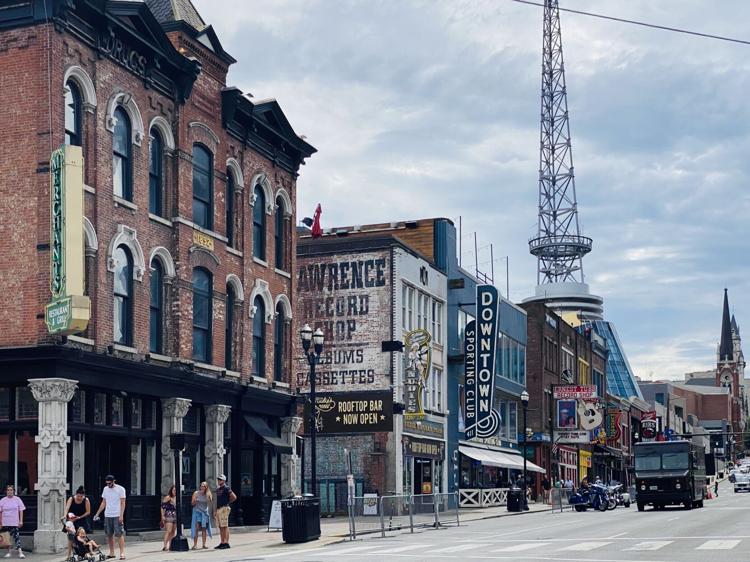The Center Square [By Vivian Jones]
Mandatory COVID-19 shutdowns are driving Nashville’s artists out of town and pushing the city’s music venues to the brink of collapse.
One group of musicians in the city is begging Mayor John Cooper to let them work.
“What’s preventing musicians from working has been the extra mandates from the mayor,” said one Nashville artist, Emily Jerde.
Jerde plays the fiddle in a band she started with her brother and sister. They go on tour every summer and in the off-season, the band plays gigs on Broadway. When Metro health orders shut down Broadway, Jerde’s life changed.
“Probably 85 percent of our income was just gone overnight,” Jerde said. “We’ve spent so many years developing our craft. It’s been tough to have that taken away.”
Nashville’s music and entertainment venues have been closed or heavily restricted by Metro public health orders since March. Cooper’s Roadmap for Reopening allows venues with occupancy limits under 1,500 to reopen, but subjects them to heavy restrictions.
Nashville’s 15 independent music venues have experienced a 90 percent revenue loss since March 15, according to Nashville’s chapter of the National Independent Venue Association, Tennessee Lookout reported. The venues have an estimated six weeks before they’re forced to close for good.
Meanwhile, strip clubs such as DejaVu Showgirls remain open and operational.
“Why is a music venue a bigger risk than a mall? Why are the strip clubs allowed to be open and not wearing masks?” Jerde said. “I just want the same rights as a stripper. I can’t believe I’m saying that. We just want the right to make a living doing what we do. We want to play music.”
Nashville’s music industry sustains an estimated 56,000 jobs within the Nashville area, and, before COVID-19, contributed $5.5 billion to the local economy, according to a report published by the Recording Industry Association of America earlier this year. Nashville’s music industry employs 7.8 in every 1,000 working age Nashvillians – a higher industry employment rate than any other U.S. city.
As Music City’s musicians continue to struggle to survive, Jerde and another artist, John Taylor, came up with the idea to create a platform where musicians can share the struggles they’re facing. Together, they launched pages on Facebook and Instagram called “Let Us Work Music City,” and began publishing submitted videos.
“I play guitar for a living on Nashville’s Broadway,” Nashville guitarist Jake Gerard said in one video. “I’ve been impacted by the decisions of Mayor Cooper to keep Broadway closed in the wake of the coronavirus crisis. This is something that’s totally derailed my life.”
“For 2020, compared to 2019, my income year to date from music is 36 percent of what it was in 2019,” drummer Alan Blackston said in another video. “Looking at just the COVID lockdown period March 16 until today, my income is 15 – that’s one-five – percent of what it was the same period last year.”
“It’s crushing musicians, and the industry,” Blackston added. “Please open us up, let us work.”
The shutdowns have driven some musicians to end their careers.
“The tough ones are going to make it through, those that have another form of income: another trade or another degree,” Jerde said. “But there’s a lot of people who have permanently quit, who have left because it’s been so long since they’ve had any income.”
In her own small circle, Jerde said she knows about 30 people who have left town.
“Take that and multiply it to the entire community,” Jerde said.
Some temporary help may be on the way. Nashville’s COVID-19 Financial Oversight Committee recommended $2 million in federal Coronavirus Aid, Relief and Economic Security Act funding last week be designated for grants to aid Nashville’s music venues and small businesses. The proposal still requires approval by Nashville’s Metro Council.
“I see the grants as a Band-Aid,” Jerde said. “I don’t think that it’s a long-term solution.”
Instead, artists said they just want to be allowed to do their job.
“Let us go back to work,” Gerard said. “I mean, let us do something. Everybody else is doing something with restrictions. Why can’t we?”



One Response
Cities keep voting blue and this is what ya get.